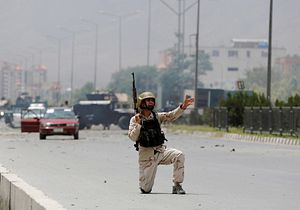To understand the significance of the Taliban to Pakistan, it is important to understand the historically fraught ties not only between India and Pakistan, but also between Pakistan and Afghanistan. While it is commonly believed that Pakistan’s relationship with groups such as the Taliban emerged during the anti-Soviet jihad, this is a considerable understatement of the relationship. In fact, Pakistan’s dalliance with Islamist politics and Islamist militant groups in Afghanistan dates back to the earliest days of Pakistan’s independence. This attests to the enduring security challenges that Pakistan perceives in Afghanistan. Whether these fears are founded or not, Pakistan acts upon them as if they are fact.
Pakistan – unlike the United States – is asymmetrically motivated to stay the course in Afghanistan. Having successfully manipulated jihadi groups for decades, Pakistan has grown insouciant about its ability to continue riding this tiger. However, recent developments such as the announced death of Mullah Omar and the splits within the Taliban, as well as the emergence of ISIS in Afghanistan and Pakistan, raise the stakes for Islamabad. It is unlikely that Pakistan will be able to regain the kind of control that it exercised over the Taliban in the past. The most likely outcome is ever-deepening violence in Afghanistan and Pakistan. Unfortunately, as the world saw on 9/11, the sequelae of these developments are not likely to be confined to Afghanistan or Pakistan.
A Quest for Strategic Depth
Pakistan has been motivated to manipulate affairs in Afghanistan since the earliest years of Pakistan’s independence in 1947, when the British decolonized South Asia by cleaving the subcontinent into two independent states, India and Pakistan, in a bloody partition that killed as many as a million and instigated the largest migration of humans known to modern history. The sanguinary legacy of partition and the communal cleansing it galvanized, as well as the territorial dispute over Kashmir which Pakistan commenced in 1947, has left India and Pakistan as bitter rivals ever since with Pakistan seeking to change maps through violence. While Pakistan’s antagonisms with regard to India are well known, Pakistan also has pursued an interventionist agenda in Afghanistan from the earliest years of independence. The reasons for this are numerous.
































